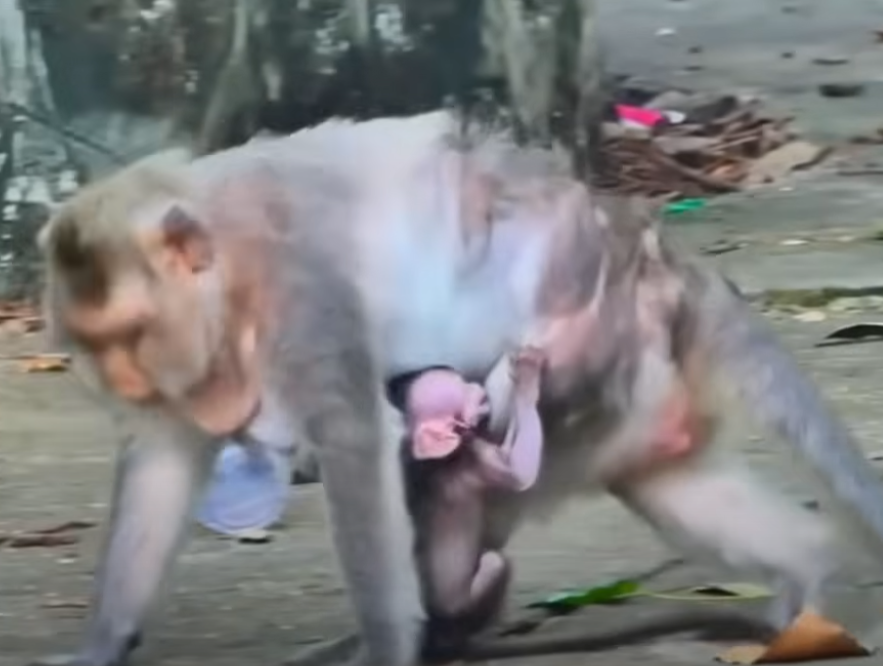The forest floor of Angkor Wat was unusually still that morning. A faint rustle of dry leaves echoed beneath the ancient temple trees, and in the middle of it all was a baby monkey named Bibo—his small feet pattering in the dust, his eyes wide and confused, as he chased after his mother.
He wasn’t asking for much—just a moment of closeness, a drop of warm milk, a sign of the connection that once bound them tightly.
But Mama didn’t stop.
She walked faster, occasionally glancing back, ears twitching in irritation. Bibo, no more than a few weeks old, stumbled to keep up, his tiny hands stretching toward the swaying curve of her tail. He squeaked—soft, high-pitched cries that any mother would recognize. But this mother… she didn’t turn back.

From behind my camera, I watched—helpless. I’ve seen so many moments of maternal warmth here in Angkor. But today was different. This wasn’t rejection born of cruelty. It was something sadder. Something more human.
Bibo’s mother had recently given birth again—or perhaps she was weak from hunger, or injured, or emotionally distant from past trauma. Whatever the cause, her refusal wasn’t heartless. It was haunted.
Bibo paused. His little body sagged in the heat. He looked around at the towering trees like they might give him an answer. But all he found was silence.
Then, in the gentlest act of heartbreak, Bibo waddled forward again, holding on to a fading hope.
I walked quietly around to where he collapsed beside a patch of moss, still staring in the direction she’d gone. His breathing was heavy, his chest rising and falling with exhaustion and grief. For a second, he laid his cheek on the ground—just a baby trying to feel something soft, something familiar, something close to a mother’s warmth.
That’s when Mama stopped. She turned her head, just enough for their eyes to meet across the distance.
Bibo didn’t run to her. Not this time.
She took a single step in his direction, then another—and then she sat, back facing him.
It was a compromise. A silent message that maybe, even in refusal, she was still his mother. Maybe, in her own confused way, she still loved him.
Bibo crawled close and sat beside her—not nursing, not cuddling. Just being there. And sometimes, that’s all a baby really needs: to not be forgotten.
In Angkor Wat, where the temples whisper ancient stories of devotion and loss, Bibo added his own.
For the rest of the afternoon, I watched them quietly. Mama never gave him milk. But she didn’t run anymore. She let him rest near her, as if silently acknowledging his place in her world.
To those watching from afar, it might seem like she didn’t care. But if you were here—if you saw the way her ears twitched every time he whimpered, how her tail subtly shifted to touch his—you’d know there was love there. Wounded. Hesitant. But real.
This wasn’t the happy ending I wanted for Bibo. But it was a real one. And sometimes, in nature, real is all there is.
The next day, I saw them again. Still together.
Still trying.